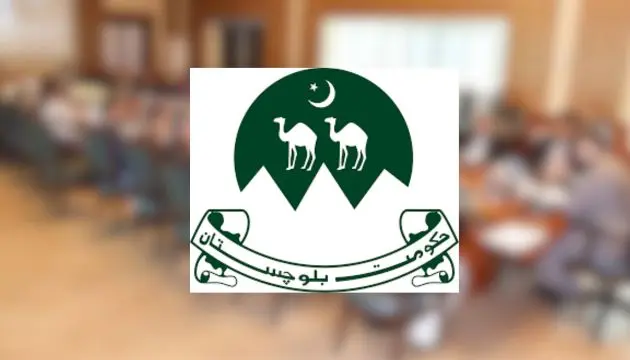ISLAMABAD: The Balochistan government has stopped night travel, mostly for public transport, on main roads in several areas because of safety problems. This was announced on Sunday.
According to a private media report, there have been more terrorist attacks in Balochistan this year, including times when people on buses were attacked and killed.
Officials in Gwadar, Kachhi, Zhob, Noshki, and Musakhel districts made rules to stop travel at night. The Quetta government also said public transport leaving the city cannot travel at night.
Quetta Commissioner Hamza Shafqaat told Private Newspaper that he had a meeting where they decided to stop public transport on the Karachi-Quetta highway (N-25), also called the RCD Highway, at night. This cuts off Balochistan from Sindh after dark.
They also said buses and coaches need to leave on time to avoid delays. Trackers and cameras in buses must work, and transport companies were asked to follow the rules.
On March 28, Gwadar official Hamoodur Rehman said all public transport on the Makran Coastal Highway (N-10) cannot run at night until further notice. He added that, for passenger safety, they worked with private transport groups to set times for buses leaving Karachi, Gwadar, and Quetta so they arrive before night.
Buses from Karachi or Quetta to Gwadar must leave between 5am and 10am. Buses from Gwadar to those cities must leave between 6am and 1pm.
Kachhi official Jahanzaib Langove said all transport, public and private, cannot use the Quetta-Sukkur highway (N-65) from 5pm to 5am starting March 28 until further notice. This stops travel between Balochistan and Sindh at night. Vehicles from Sibi to Quetta during those hours will stop at the Nari River bank in Sibi, and those from Quetta will stop at Kolpur.
Also Read | HEC directs universities to include Fehm-e-Quran courses in degree programs
Zhob official Mehboob Ahmad said public buses and coaches cannot travel through Zhob on the N-50 highway, which connects Quetta to Dera Ismail Khan in Khyber Pakhtunkhwa, at night. Travel is not allowed from 6pm to 6am starting March 27 until further notice.
Noshki official Amjad Soomro and Musakhel official Juma Dad Mandokhail made similar rules, stopping public transport on the Quetta-Taftan (N-40) and Multan-Loralai (N-70) highways from 6pm to 6am.
Highway Attacks:
Balochistan government spokesman Shahid Rind said national highways have been closed 76 times since January 1 for different reasons.
Recently, attackers in Balochistan have increased their actions. The banned Balochistan Liberation Army (BLA) has been a main group behind terrorist attacks in Pakistan in 2024.
Not long ago, armed men blocked the Coastal Highway in Gwadar and killed six people from Punjab after taking them off a bus going to Karachi.
Earlier this month, the Jaffar Express train was taken over, and 26 hostages, including 18 security workers, died. Five more security workers died during the rescue.
Also Read | Ex-foreign secretary Najmuddin Shaikh dies in Karachi
Last month, attackers blocked parts of the Quetta-Sukkur N-65 highway in Bolan and took weapons from the security team of Balochistan Parliamentary Secretary Mir Liaquat Ali Lehri.
The month before, seven passengers heading to Punjab were taken off a bus and shot dead in Barkhan district.
In August last year, when BLA did many attacks across the province, 23 travelers were taken off trucks and buses and shot in Musakhail district. In April 2024, nine people were forced off a bus and killed after gunmen blocked the Quetta-Taftan Highway N-40 near Noshki.














